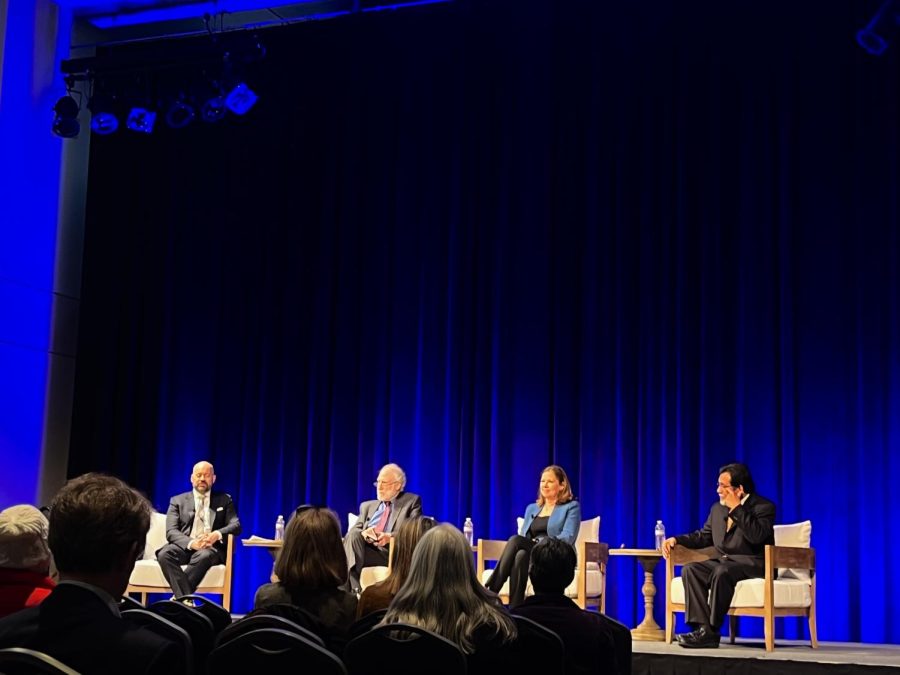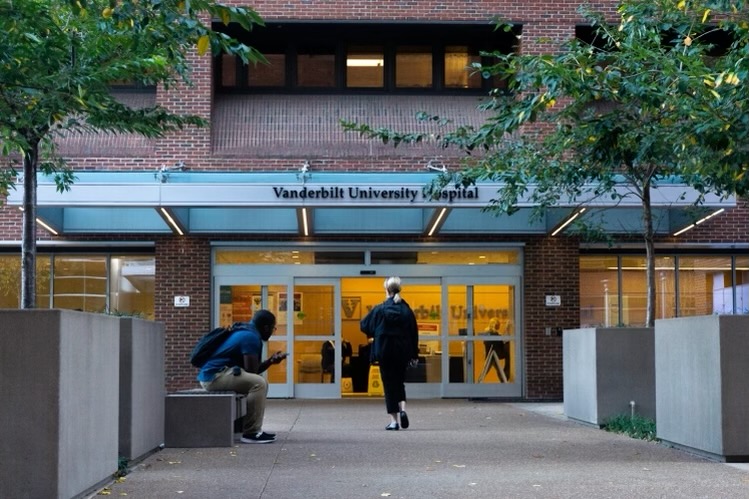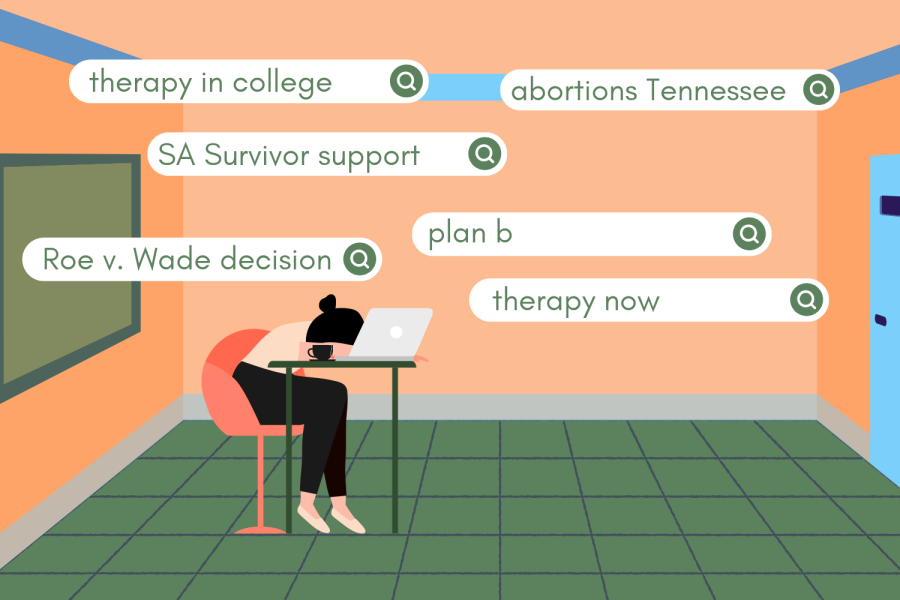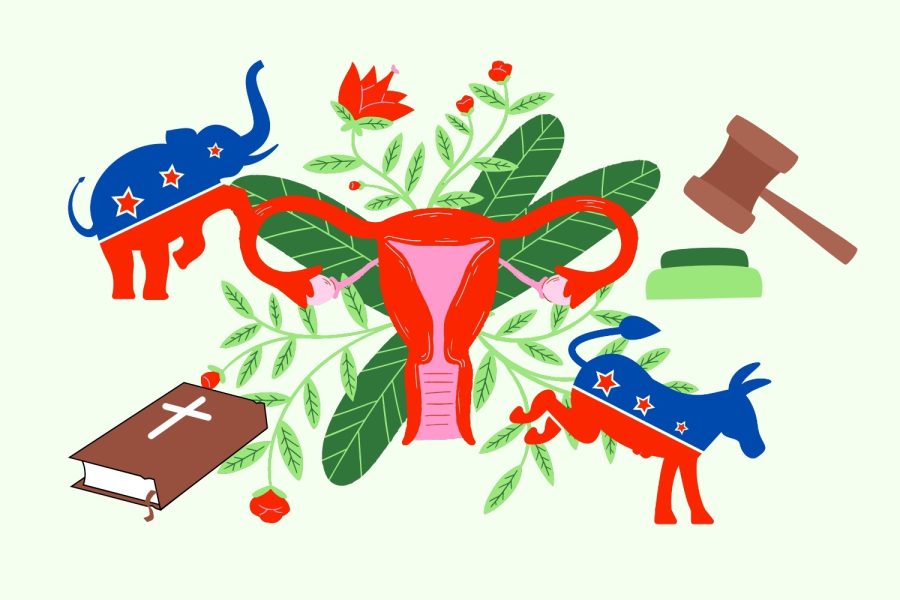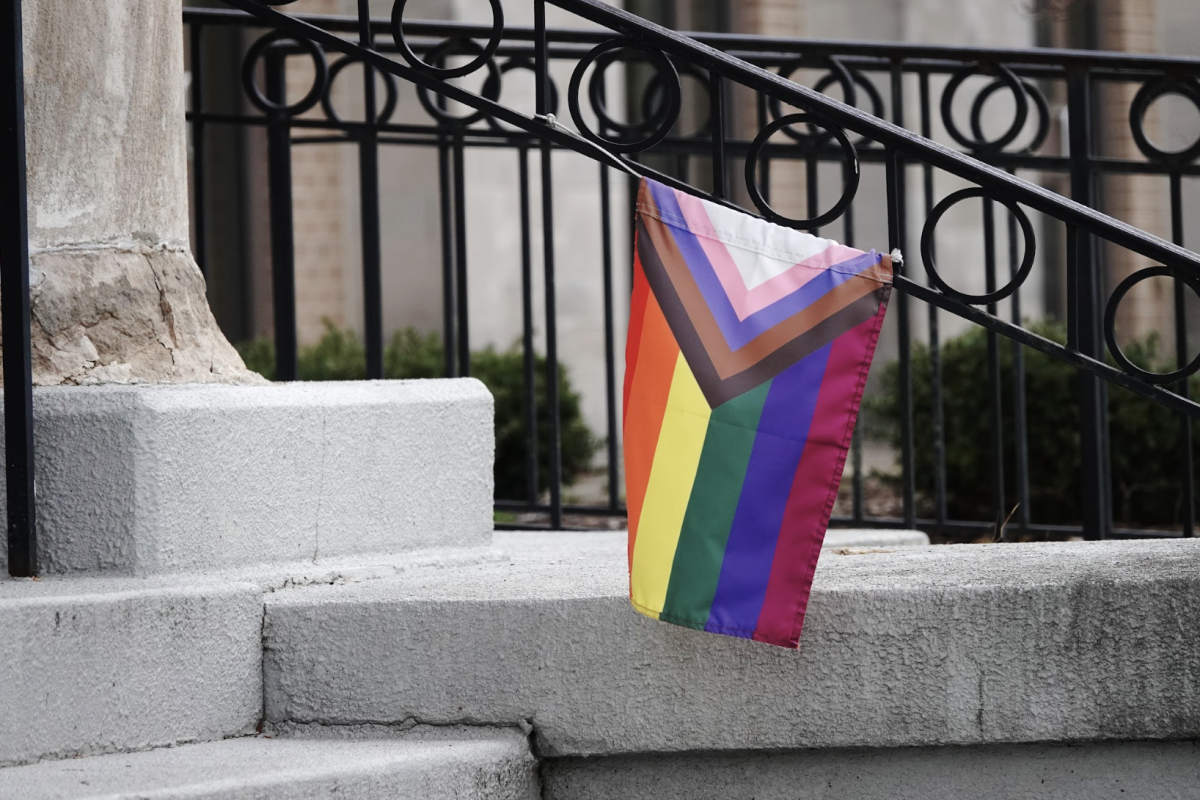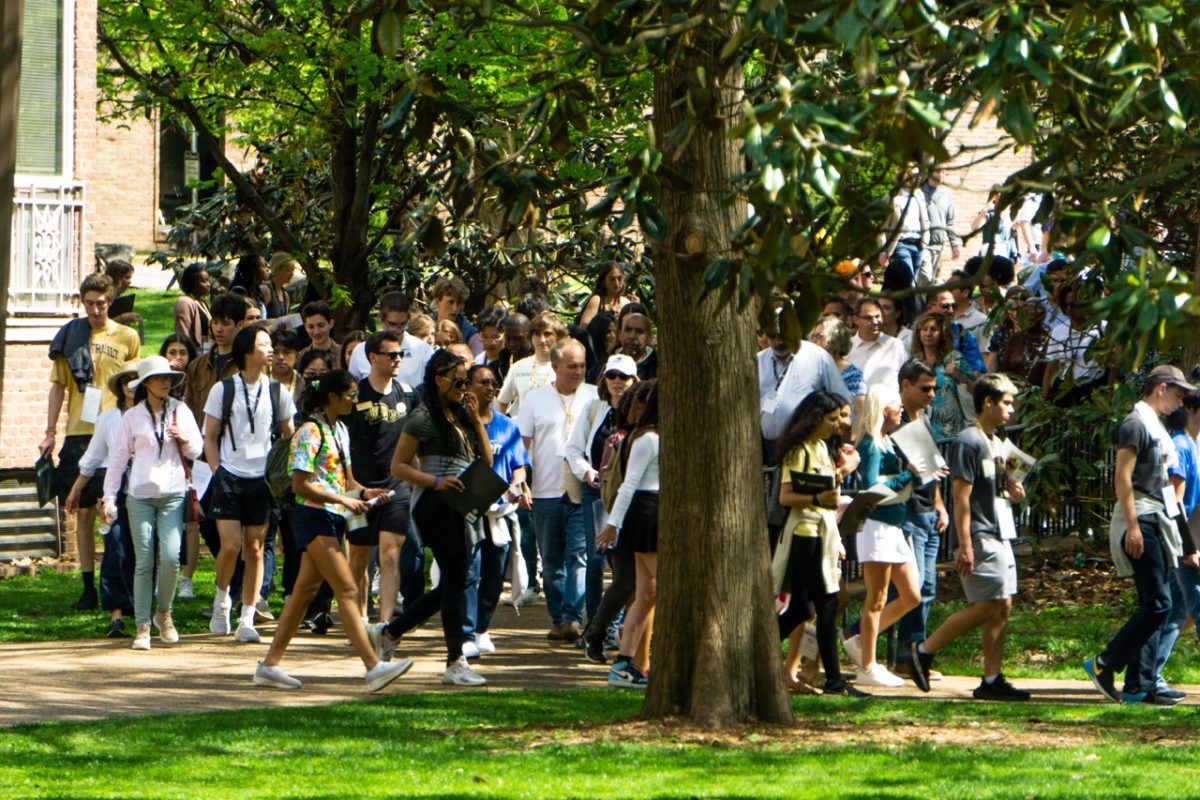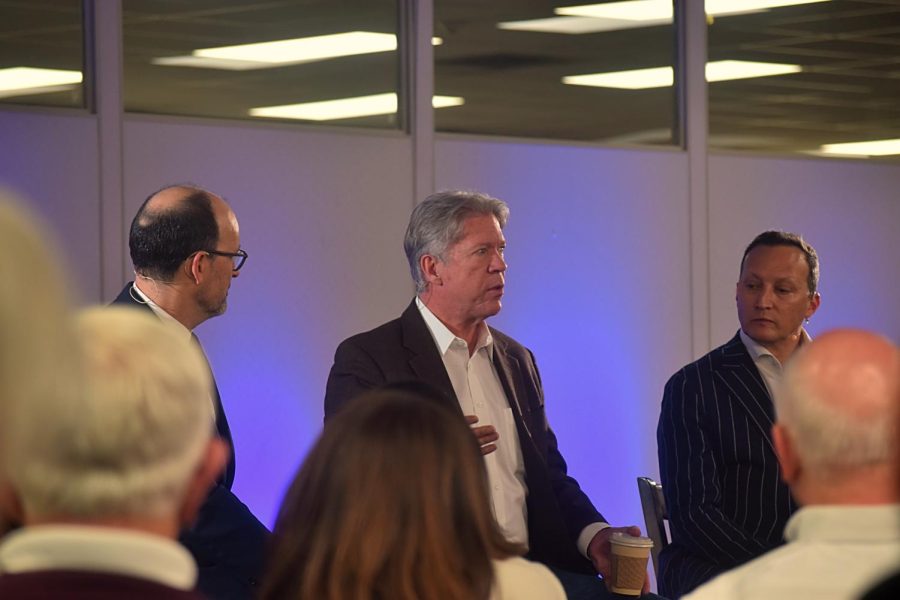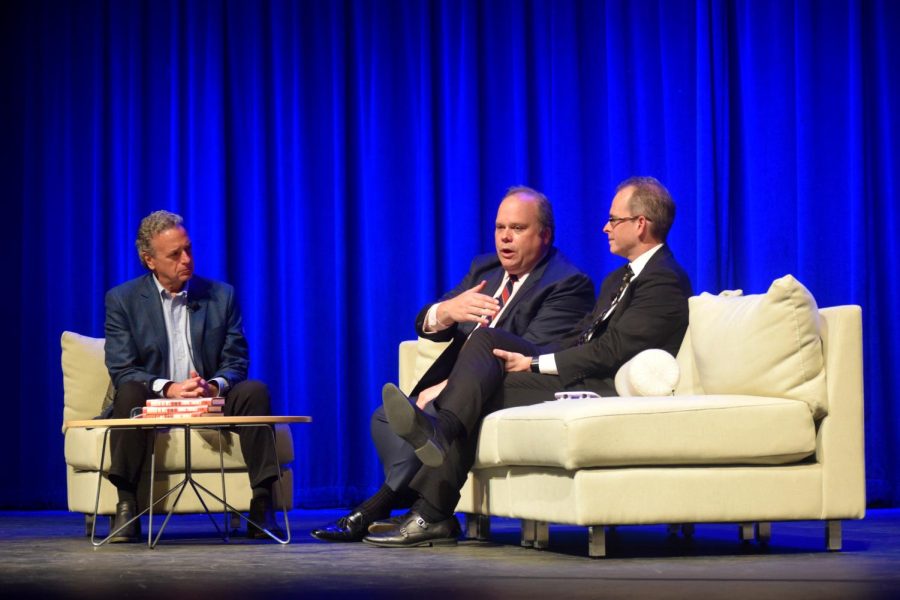The Vanderbilt Project on Unity and American Democracy hosted former U.S. Attorney General Alberto Gonzalez, former White House Counsel Robert Bauer and Chief CBS News Legal Correspondent Jan Crawford on Nov. 29 for a panel discussion on the future of the U.S. Supreme Court. Moderated by associate professor of law Brain Fitzpatrick, the event centered on the Supreme Court’s recent controversial decisions and potential future reforms to the court.
First-year Sam Schulman said he appreciated the opportunity to learn from prominent political experts.
“I was grateful that I go to a school where I can hear such prominent figures in politics,” Schulman said. “These people were in the Oval Office of multiple presidential administrations or the frontlines of covering them, and the fact that I was able to see them speak makes me appreciate Vanderbilt and the Unity Project.”
The panelists began by discussing how the public’s opinion of the Supreme Court and its justices has shifted in recent years. They all agreed that the present extreme polarization of politics contributes to how the Court is perceived by the public. They added that Dobbs v. Jackson Women’s Health Organization, which recently ruled that the Constitution does not guarantee a right to abortion, has contributed to this shift.
“If you’re a conservative and you believe that this Supreme Court is finally embracing a method of constitutional interpretation that you support, you think this Court [is] doing a great job,” Crawford said. “If you’re a liberal, you’re horrified that they are overturning precedent that has been on the books for half a century.”
Fitzpatrick went on to ask Bauer about the Court overturning this 50-year precedent and its impact on the Court’s credibility. Bauer said he believes there are consequences of the Court overturning Roe v. Wade, but also that the public is misinformed on how the Court functions.
“It’s not a small step for the court, particularly for something that sometimes is described as a ‘super precedent,’ to overrule it. But [the public’s] understanding of the institution—how it operates and its motivation and what it needs to overhaul a precedent—is absorbed from the political commentary around it in the media and lobbying groups, groups that are dedicated to trying to move the court in one direction or another,” Bauer said.
Bauer added that it is often outside groups and commentators on the Supreme Court which serve to “inflame opinion” by presenting “misleading” pictures of decisions the court makes.
The panelists went on to discuss how confirmation hearings have contributed to the court’s politicization, with nominee approvals changing from an almost unanimous agreement by Senate members in the past to voting along party lines in recent years. Gonzalez shared his opinion on then-Senate Majority Leader McConnell’s differing decisions in 2016 and 2020 on accepting presidential nominations to fill an empty Supreme Court seat.
“The president [Obama] did his job. He nominated a qualified individual to be on the Supreme Court. The Senate failed to do its job. That was wrong. And then Amy Coney Barrett. There was a vacancy in the last few months of [Trump’s] term and McConnell did what he said would have been wrong before,” Gonzales said. “That further politicizes the process.”
Crawford added that the nomination process often forces nominees to take positions on potential cases before ever seeing the case documents. According to Crawford, this can lock the nominees into the politically convenient stances they shared during their nomination, rather than making an honest opinion once they are appointed.
“When [the justices] get the papers before them, they may see things differently,” Crawford said. “Who would have thought that a Reagan appointee [Kennedy] would refuse to overturn Roe v. Wade and write literally the foundation for some of the most defining and transformative gay rights cases of our time?”
The panelists went on to discuss the possibilities of various reforms to the court, including adding term limits of 18 years, with a vacancy opening every two years so each president can have two nominations. Crawford and Gonzalez said that there are problems that will result from such limits, while Bauer strongly approved of them.
“I fear that if we have term limits, opponents of the president will know when there’s gonna be a vacancy and go be better prepared. There’s more time to do opposition research. I think it will make the confirmation hearing actually more political,” Gonzalez said.
Bauer said he thinks term limits should be applied because he believes the amount of power that justices hold during a life tenure is not supported by American democratic principles.
“Jimmy Carter, who was president for four years, has zero Supreme Court appointments. Donald Trump, who was president for four years, has three Supreme Court appointments. I think that’s a distortion in the way that we think about the operation of the democratic process,” Bauer said.

